Art Can be Therapeutic by Kate Hopper
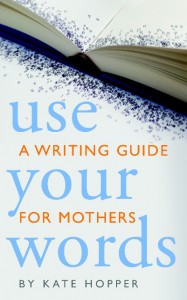 Happy Friday, friends! I’ve been writing to make sense of my life for years. In the past ten years, I’ve been researching and writing about how writing can help us to heal physically and emotionally. Today, Kate Hopper writes about the therapeutic nature of writing creative nonfiction. If you’re a Milwaukee-area writer and want to learn more from Kate Hopper, she will be leading a mini workshop at Boswell Book Company on Saturday, May 12. from 1:00 – 3:00 PM. She’s also generously agreed to give away a copy of her book, Use Your Words: A Writing Guide For Mothers. Leave a comment here on the blog by Sunday, May 13, 2012 at midnight if you’d like to be entered into a drawing to win. I’ll announce the winners for this and the Write-A-Thon contest on Tuesday’s blog post!
Happy Friday, friends! I’ve been writing to make sense of my life for years. In the past ten years, I’ve been researching and writing about how writing can help us to heal physically and emotionally. Today, Kate Hopper writes about the therapeutic nature of writing creative nonfiction. If you’re a Milwaukee-area writer and want to learn more from Kate Hopper, she will be leading a mini workshop at Boswell Book Company on Saturday, May 12. from 1:00 – 3:00 PM. She’s also generously agreed to give away a copy of her book, Use Your Words: A Writing Guide For Mothers. Leave a comment here on the blog by Sunday, May 13, 2012 at midnight if you’d like to be entered into a drawing to win. I’ll announce the winners for this and the Write-A-Thon contest on Tuesday’s blog post!
Art Can Be Therapeutic: Writing and Motherhood
In the prologue to her memoir-in-progress, my student Cindy Nerhbass writes how the memories of her daughter’s near death are still palpable. Her daughter, born with Down syndrome and a hole in her heart, almost died in surgery when she was six months old. Fifteen years after the fact, Nerhbass writes, “no hours of therapy, no years passing, no counting of blessings, and no strength of will” can “render [these memories] benign.” She goes on:
My most useful tools, save God’s grace, are pen and paper, the keyboard and screen. Wise teachers have guided, Write about this; write about that. And so, little by little, I must chip away at memory’s fortress with chisels of words and empty spaces. This is the only true way out for a writer, isn’t it? I will write and wait for that transformational healing to begin, for the fog to dissipate and memories to relinquish their hold. Yet, all I can really say is this: My daughter nearly died (and this is the truth), and it changed me forever. Truth again.
At readings and in interviews over the years, I’ve heard writers—specifically writers of creative nonfiction—claim that the process of writing their stories wasn’t therapeutic. I have seen them shake their heads, clearly offended at the suggestion. And I’m always curious about this; my guess is that they think if their writing is tied in any way to “therapy,” it will somehow undercut the work they’ve put into crafting it.
But I believe that you can experience a transformation—a therapeutic transformation—in the writing process and still end up with art.
In his essay “The Fact Behind the Facts,” Philip Gerard says that a memoir is “not simply a scrapbook of memories to brood over or cherish, but a reckoning. That’s the reason to write a memoir: to find out what really happened in your life; to drive toward the fact behind all the other facts, and come to some understanding, however limited, of what it means—and accept that truth.”
If you are truly doing this work of “reckoning,” of diving in and fearlessly searching for the story in the material of your life, it’s impossible for you not to make discoveries and gain perspective on the life you’ve lived. Isn’t that process, at least on some level, therapeutic? Experiencing that does not detract from what an author has carefully crafted.
In every class I’ve taught I’ve had students grappling with the hard stuff—from postpartum depression and feelings of guilt and inadequacy to coming to terms with having a child with special needs to losing a child to illness or an accident. I have witnessed the crafting of beautiful writing from these losses, and I have heard how the process of writing helped these mothers come to terms with their heartbreak.
But writing can do more than help us, as writers, process and come to terms with the hard parts of motherhood and life; it can also change other mothers’ lives. As my students mentioned in the previous chapter, when we read the struggles that other mothers have had, we know we’re not alone in our own struggles, even if our challenges and heartbreaks are different. In the introduction to her anthology Love You to Pieces: Creative Writers on Raising a Child with Special Needs, Suzanne Kamata writes:
I’m the kind of person who looks to literature to make sense of life, so when I learned that my daughter was deaf and had cerebral palsy, I sobbed for a while and then logged onto Amazon.com. I was looking for deep and sustaining stories to guide me on the long path ahead, and while I found many cheery volumes offering hope and inspiration, that wasn’t exactly what I wanted. I needed to know that others had felt the same kind of pain, fear, and anger that I was feeling, and I wanted a better idea of how my daughter’s disability would affect my marriage, my son, my work, and other aspects of our lives. The best novels, short stories, and memoirs can pull us into the lives of their characters and provide a deeper understanding of others, [and] poetry can distill and illuminate moments that longer essays gloss over.
She ends the introduction with this: “…literature eases loneliness and helps us understand and empathize with those unlike ourselves.”
Reading a wide variety of voices and experiences—those of mothers and nonmothers alike—not only makes me a better mother; it makes me a better person. When I can walk in another person’s shoes, my view of the world and its many joys and challenges expands. It makes me more compassionate and less judgmental, gives me an opportunity to connect with other people, regardless of where we came from and what we believe in. Always my hope in teaching and writing is that as mothers and people we can connect with and feel compassion for one another. I think we can, even when we don’t agree.
How has writing the “hard stuff” allowed you to move past it, accept it, or grieve it in a new way?
Kate Hopper is author of Use Your Words: A Writing Guide for Mothers. She will be leading a free mini workshop and discussion at Boswell Book Company on Saturday May 12 from 1-3 p.m. to learn more about her classes and workshops please visit www.katehopper.com.

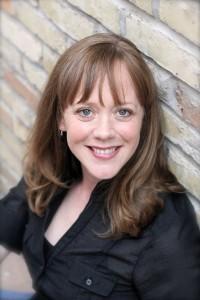



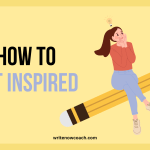
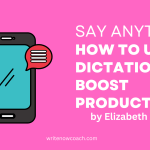
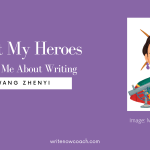
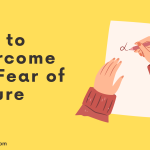







Too funny…..when I was going to art school I was expressly told, “ART is NOT art therapy.” I look back at that and think, how silly……
This is encouraging not just for memoirists (real word)… I’ve yet to write about experiences too painful to go through; feeling the creative pursuits and process of (making stuff up, reading other stories real or not) would somehow get me back into writing…after a LONG drought. But I think if we want to do that (or if I do) I need to release those stories! Maybe you can suggest a nice place to begin outside of journal writing to construct a memoir? Thank you, and happy Mother’s day!
Thank you, Ruth!
I have a chapter in Use Your Words that’s all about using voice and tense to write the “hard stuff.” It might be a helpful place to start. Wishing you luck!!
It’s hard to imagine writing not being therapeutic – at least for me. It doesn’t matter what I’m writing – my book, an article, a press release – when I allow myself to go completely into the writing zone, it’s absolutely a form of therapy. That’s part of the reason I do it!
I couldn’t agree more! And since I’m desperately in need of therapy and longing to return to my writing and painting following the emotional disconnect of trudging through the initial stages of a family tragedy, I’m ready for a book like this. Maybe it will help me encourage my kids to use their own creativity to survive and thrive through this difficult time, too. If I lived closer, I’d be at Kate Hopper’s seminar in a heartbeat.
I totally agree, ladies. And Rebekah, I hope writing gets you and your family through this difficult time. Thinking of you!
Yes, my writing is definitely theraputic. I write personal essays and sometimes I just want to get my experience out. I want to say to the world, you are not the only one going through this. This is waht I did and you can do the same. A friend of mine recently told me that she didn’t feel like doing anything one day, but she remembered reading my essay and it helped her. That is my reward!
Linda Cacaci
LinCaca3@aol.com
Exactly!